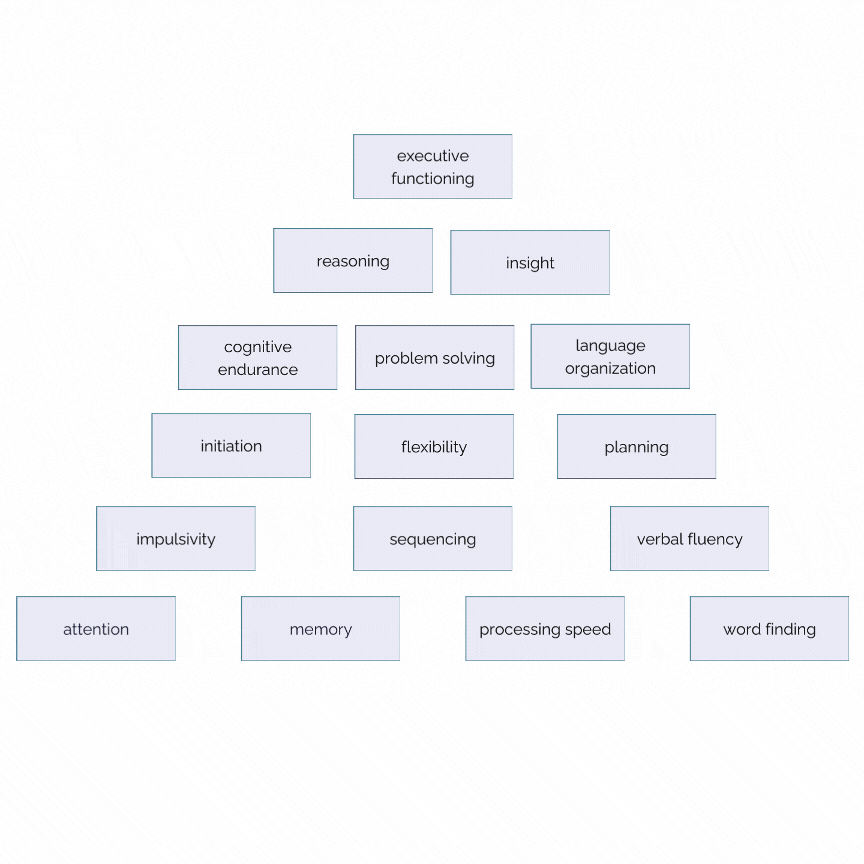What is Cognitive Communication?
Cognitive communication refers to the integration of cognitive processes and communication skills needed for successful and effective interaction and understanding. Various skills and processes are included such as attention, memory, organization and problem solving. These skills all contribute to how individuals express themselves and comprehend others. Effective cognitive communication is essential for successful social interactions and academic performance, particularly for children and young adults who are developing these critical skills.
Many of these skills and processes are interrelated and deficits in one area may impact performance in the rest. For example, foundational skills such as memory, attention, and processing speed can have direct impact on more complex processes such as problem solving, reasoning, and language organization. When a person presents with deficits in one of these areas (attention, for example, as seen in the image below) there can be a cascading effect impacting other areas of cognitive communication.
Deficits in one area of cognitive communication are likely to impact other, interrelated areas.
Cognitive communication deficits can have a direct impact on a child’s ability to learn, socialize, and share information. Children with deficits in these areas may have difficulty attending to and recalling newly learned information. They may struggle to begin tasks or shift their focus should their initial attempt be unsuccessful. They may have difficulty with reasoning, inference making, and problem solving, leading to social challenges as they may not understand why a peer responded as they did. They may also have difficulty sharing information, providing not enough or far too much detail for a listener to be able to follow their story.
Effective treatment of cognitive communication deficits focuses on providing evidence based strategies and task specific practice within functional contexts. Therapy in this area focuses on enhancing these abilities, supporting learning of new information, promoting clearer expression of thoughts, and improving overall communication effectiveness in both personal and educational settings.
About the Author
Brynn Schor, MS, CCC-SLP, CBIS (founder of Peninsula Specialty Speech Therapy, based in Menlo Park, California) specializes in assessment and treatment of cognitive communication deficits and executive function coaching for pediatric patients in the Bay Area and across California. Consultations provided worldwide.
